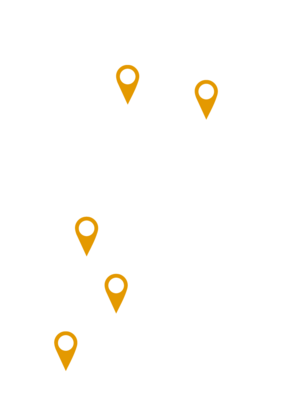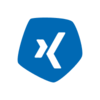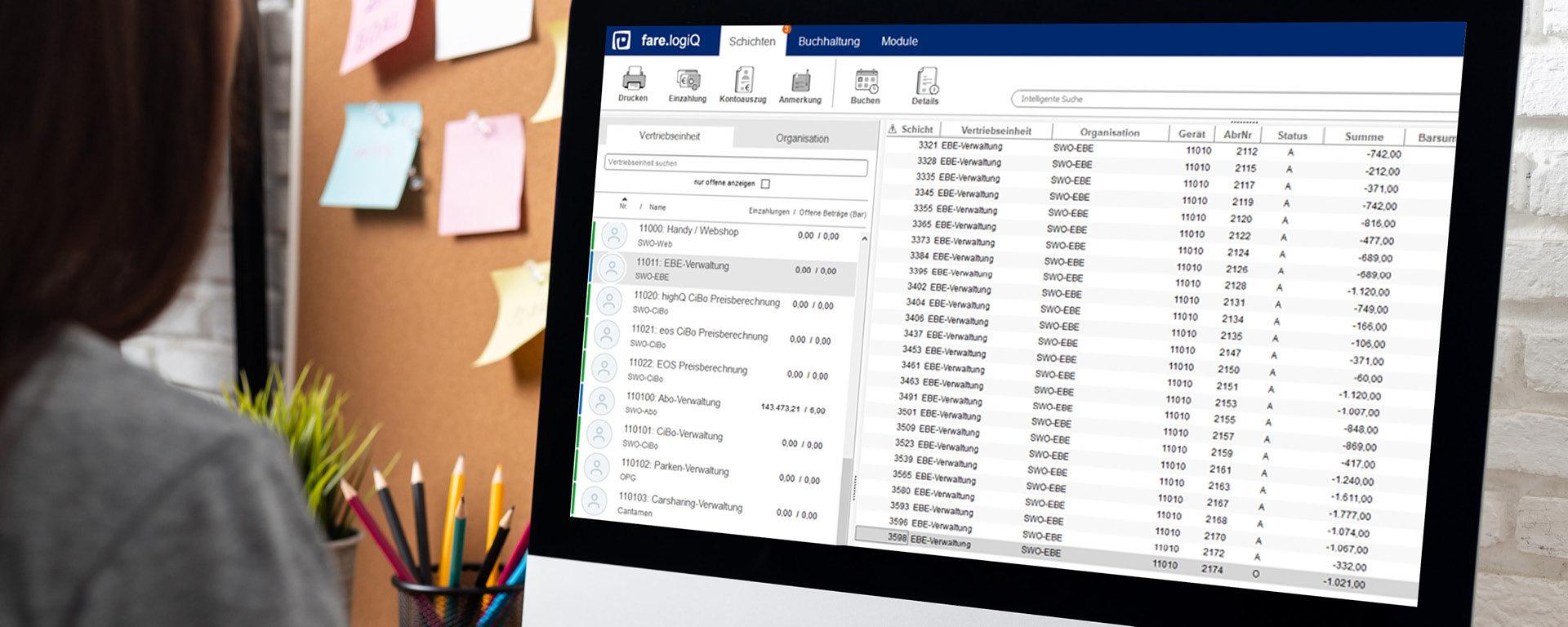
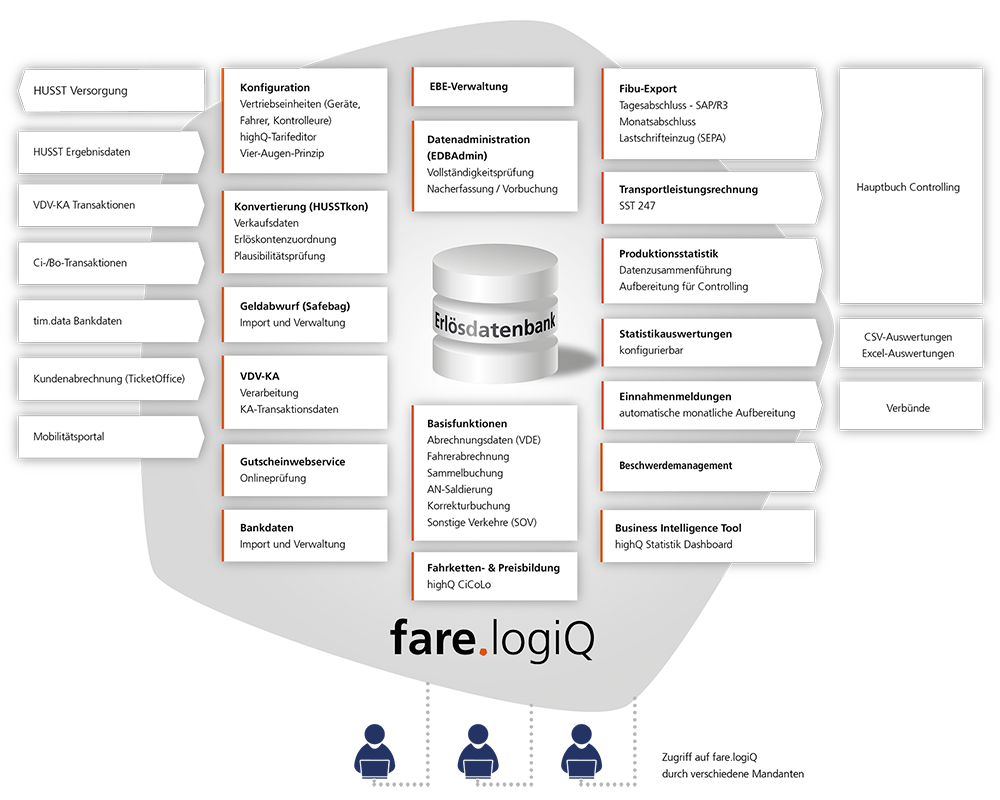
Revenue management - the optimal combination of different sales channels
fare.logiQ enables the management of sales and accounting data with devices from a wide range of manufacturers.
At the heart of fare.logiQ is a central multi-client-capable database that manages both the sales data supply of sales devices and all accounting information from the data disposal of sales devices. Standardized interfaces facilitate data exchange with devices from a wide range of manufacturers. Technical and functional data checks guarantee a correct, complete database and thus ensure security. Driver accounting, manual data entry and the option of importing data from third-party systems make fare.logiQ a powerful sub-ledger with revenue management.
With extensive exports, statistics and preparation for transport performance accounting, the functionalities are supplemented to create an overall system that can cope with even the most complex requirements of public transport. Furthermore, fare.logiQ can be used regardless of the manufacturer. In an extended form, fare.logiQ is used as a central component of the highQ mobility platform, whereby the mechanisms used in the public transport environment have also proven their worth for multimodal processes in the context of networking regional mobility service providers.
fare.logiQ is an MS Windows-based desktop application that can also be used as a central installation for remote or metaframe access.
The advantages of fare.logiQ at a glance
- All figures under control
through the direct connection to all your sales channels - Fully multi-client capable
- Independent of the hardware
by HUSST regardless of the hardware you use - Multi-level, configurable user administration
- Driver accounting
via driver accounts
- Subsequent additions & deductions
can be made in the back office - Monthly network reports
- Perfect complement
the highQ TicketApp sales system and fare.logiQ complement each other perfectly - Simplified processes
- Completeness check
the device layers are checked for completeness
- Flexible cash management
(optionally with safebag management) - Collective bookings
Shifts can be booked collectively - Daily & monthly financial statements
can be accounted for in the accounts - Statistical evaluations
fare.logiQ explained for you in 3 minutes
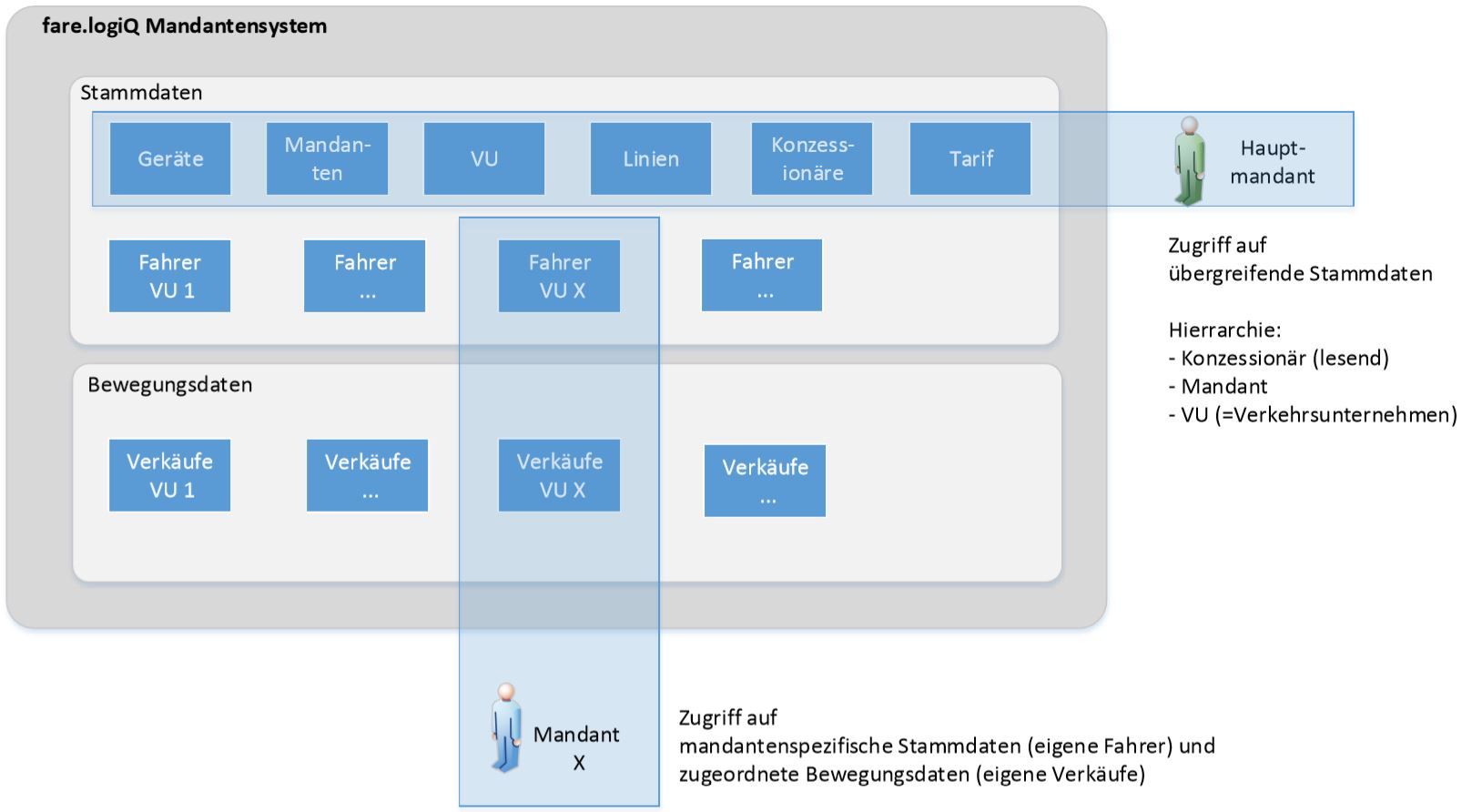
Master data and configuration
fare.logiQ offers a wide range of configuration options. The multi-level user administration follows a detailed role concept, allowing individual application areas to be clearly defined.
Client control can thus be carried out on the basis of a central database. All master data relevant to the accounting of public transport operations is defined in meaningful dependencies on several delimitation levels. Organizations are assigned to the clients, to which in turn the sales units (drivers or operators of sales equipment) are assigned. Furthermore, lines are assigned to concessions and these in turn are assigned to concessionaires.
The integrated dual control principle, which can be activated, ensures that changes only become effective after they have been confirmed by another user. Import and export options in HUSST format are available for both device and personnel master data. This allows the data to be maintained centrally and then distributed. The configuration of revenue accounts, booking codes and line concessions, among other things, is carried out here to enable automated allocation during incorporation.
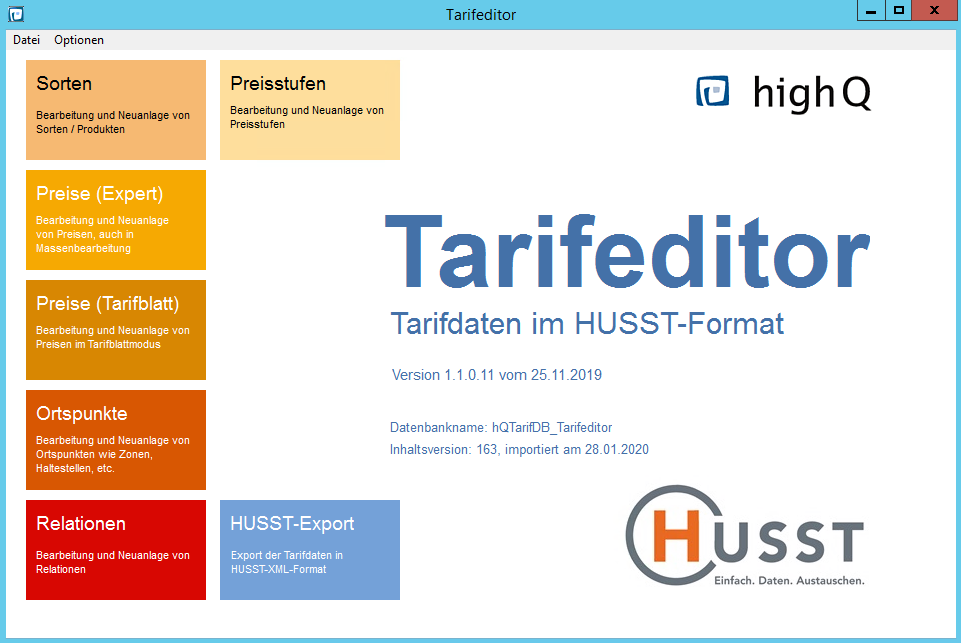
highQ fare editor
The highQ fare editor is offered as an option with fare.logiQ.
This enables the convenient creation and management of fares for different associations and companies via graphical user interfaces, which can be stored in a database as period-related fare versions and linked. In this way, route, zone and honeycomb tariffs of all kinds can be mapped.
The highQ fare editor is fully compatible with the HUSST fare format and can therefore be easily integrated into fare.logiQ as the central, leading background system.
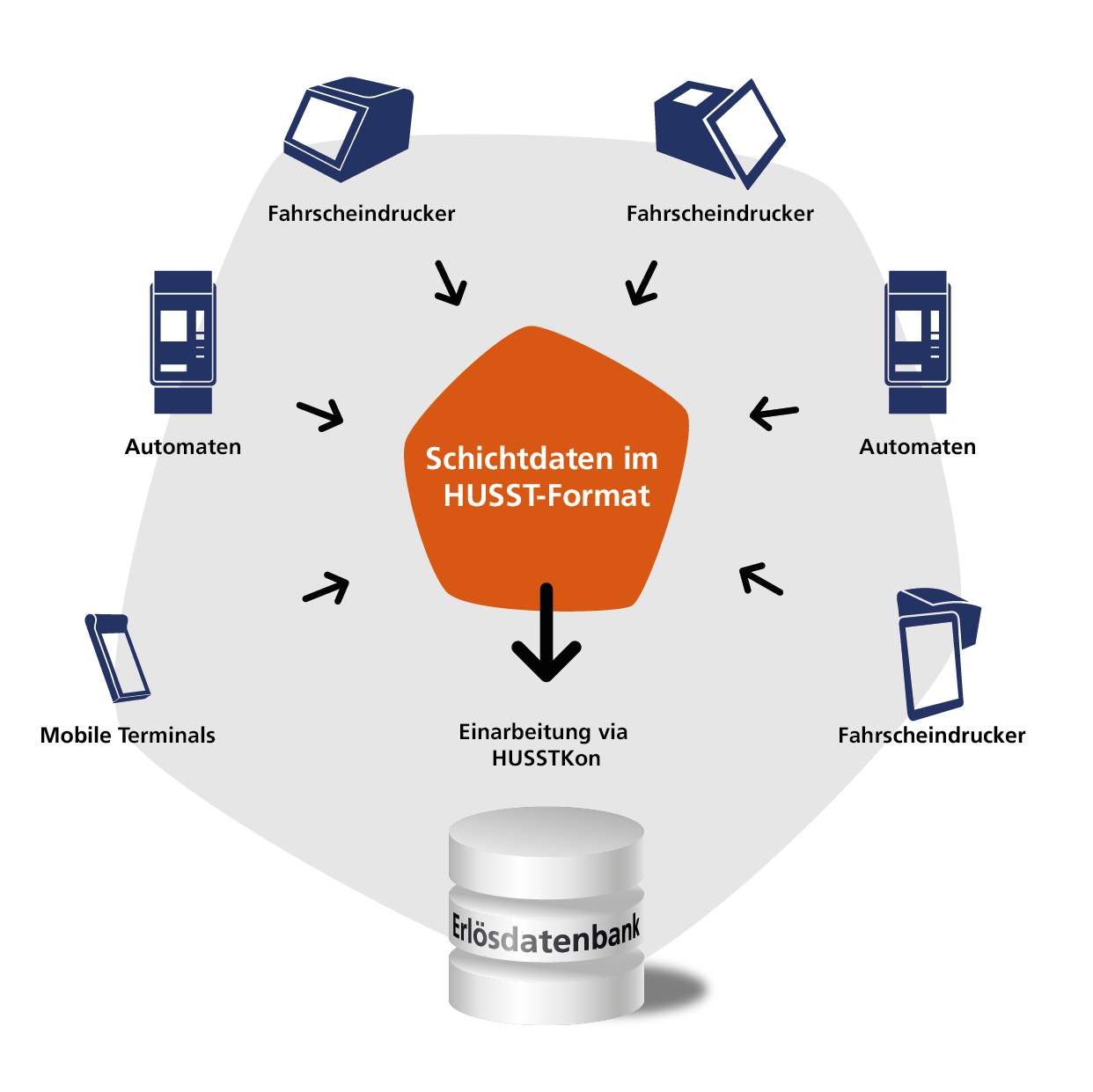
Universal data import
The HUSSTkon conversion module is used for the automated import of data in the format of the manufacturer-independent HUSST standard interface.
Sales data is imported from the connected sales systems of different manufacturers. HUSSTkon is a stand-alone program that is also available as a Windows service and then requires no manual operation. The data in XML format is cyclically imported from a predefined directory, checked and archived. In general, the correctness of the XML schema used in the data is required.
When importing sales data, a plausibility check is carried out against the device, personnel and tariff master data from the central database, among other things. Incorrect data is either marked as such in the database or not imported at all and stored in file form in a special error directory. Comprehensive process and error logs provide information about the type of errors and the measures that need to be taken to correct them. Correctly entered data is already pre-sorted by HUSSTkon for accounting and statistical purposes based on a corresponding configuration in the master data, for example by directly assigning posting key figures linked to revenue accounts and line concessions to sales. This makes subsequent statistical evaluations much easier.
In addition to sales data, tariff data, device or personnel master data can also be maintained in HUSST format. Both export and import options are available for this. fare.logiQ can therefore be used flexibly - as a leading data supply system or integrated into existing environments. Safebag data from money counting service providers or booking data from payment terminals can also be incorporated via file interfaces as an additional import option.
Monitoring and control
fare.logiQ offers mechanisms and data views for comprehensive monitoring of the technical status of the sales devices to ensure the completeness and correctness of the database.
The connection check is used to monitor the completeness of the imported sales data. Here, both individual appliances and definable appliance groups can be automatically checked for existing gaps in the consecutive numbering of the sales layers for each appliance group and appliance. The resulting shift gap report provides detailed information on this. It can be created in PDF or MS Excel format.
In the event that missing sales shifts can no longer be delivered, e.g. if an appliance is defective, there is the option of pre-booking. The corresponding shift data can be booked in manually - this option can be explicitly activated for desired users using the multi-level user administration. It is also possible to monitor the activity of individual devices. This allows you to determine whether there are devices that have not been active for a long time.
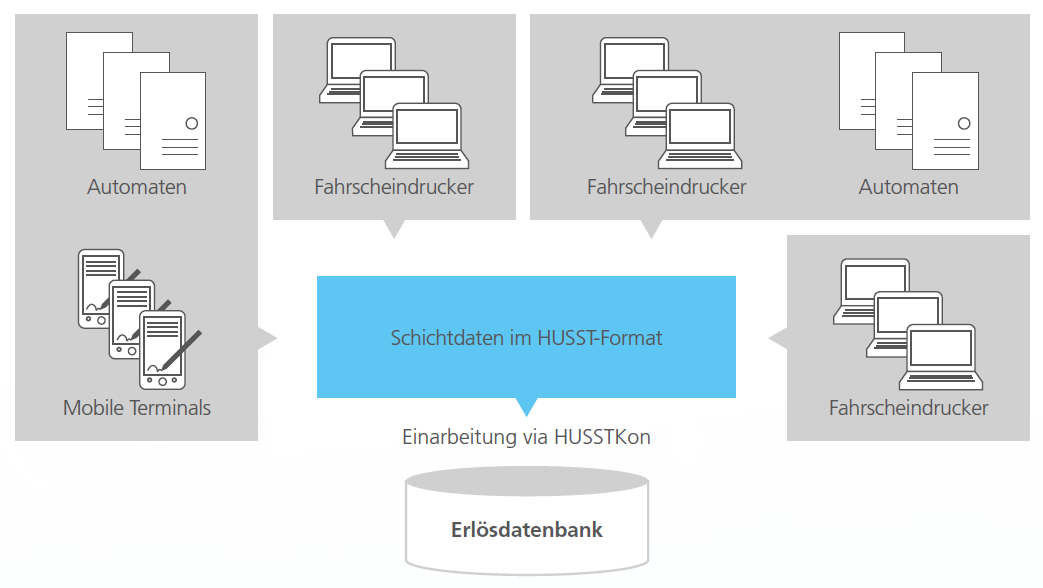
Shift accounting with operator accounts
All sales transactions from staff-operated sales and ticket machines are grouped into sales shifts, which are checked and settled via fare.logiQ.
Operator accounts are kept to check the cash receipts of drivers, train attendants or ticket inspectors. The cash collected can be assigned to the operator account either manually or automatically by importing Safebag data from a cash service provider. In the case of manual allocation, a distinction can be made as to whether the payment was paid into a bank account by the operator or delivered directly to the accounting center in cash.
A shift corresponds to a debit position that must be balanced by the corresponding amount in the operator account as a credit position. In order to enable flexible delimitation of the shifts to be posted, shifts can be posted collectively. This can be done either manually or fully automatically, depending on the configuration. The decisive factor is that the operator account has sufficient funds. Shift-based accounting is therefore not necessary. The shift bookings are summarized in daily financial statements, which are assigned to the respective fare.logiQ user. Open item lists provide a quick overview of shifts still to be booked.
A special procedure is provided for the billing of contractors. Here, it is not individual operators but the organization assigned to the operators that is used as the accrual for the collective posting. This results in a corresponding claim against the external company.
Subsequent additions and deductions, e.g. specific reversals of individual sales, subsequent voucher issues or the subsequent posting of block sales, can be carried out via fare.logiQ. These are then taken into account not only in the operator accounts, but also in the statistical data and the monthly group reports. The accounting month-end closing also records the account statements for the operator accounts, which can then be sent to the operators. They provide detailed information on all cash transactions relating to the operator, including manual corrections in the accounting office.
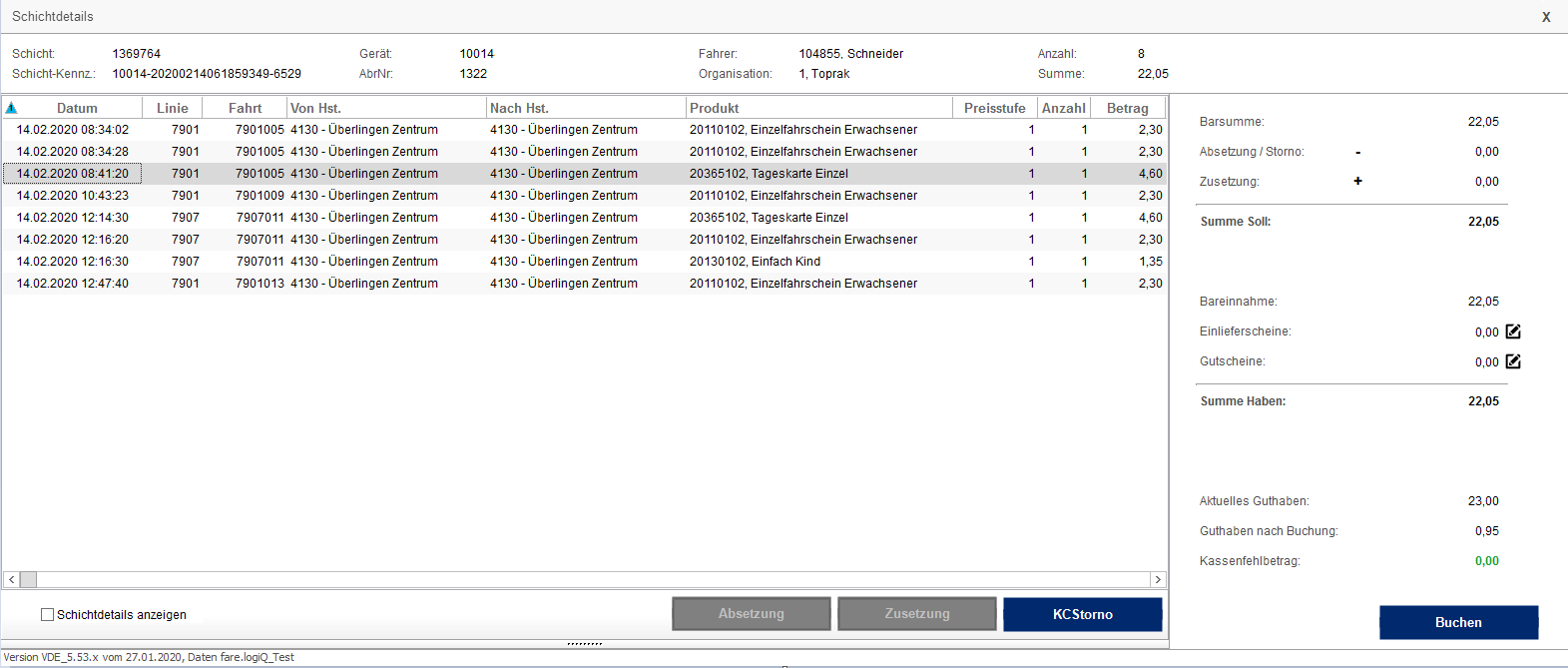
Further revenue postings
Revenues are not limited to income from ticket sales. Pupil replacement services, article sales, subsidies or revenue from network billing are just a few examples that require an additional booking option. fare.logiQ makes this possible in several modules that are adapted to different requirements.
Transport revenue can be recorded on a line-by-line basis and allocated on the basis of predefined booking combinations. The master data can be used to assign revenue accounts to the selectable booking codes. At the end, the posting process is documented with a receipt. In addition, both customers and vendors are maintained in the master data, for which revenue postings can be created on account.
External revenue, e.g. from cooperations with tourism providers, is posted to vendor numbers that are also stored in the master data. Similarly, other posting types have their own specially stored revenue accounts, which are transferred as balanced data records when exported to the general ledger. Recorded items such as amounts from change issues or cash shortfalls are also receipted. This creates a transparent traceability of all transactions.
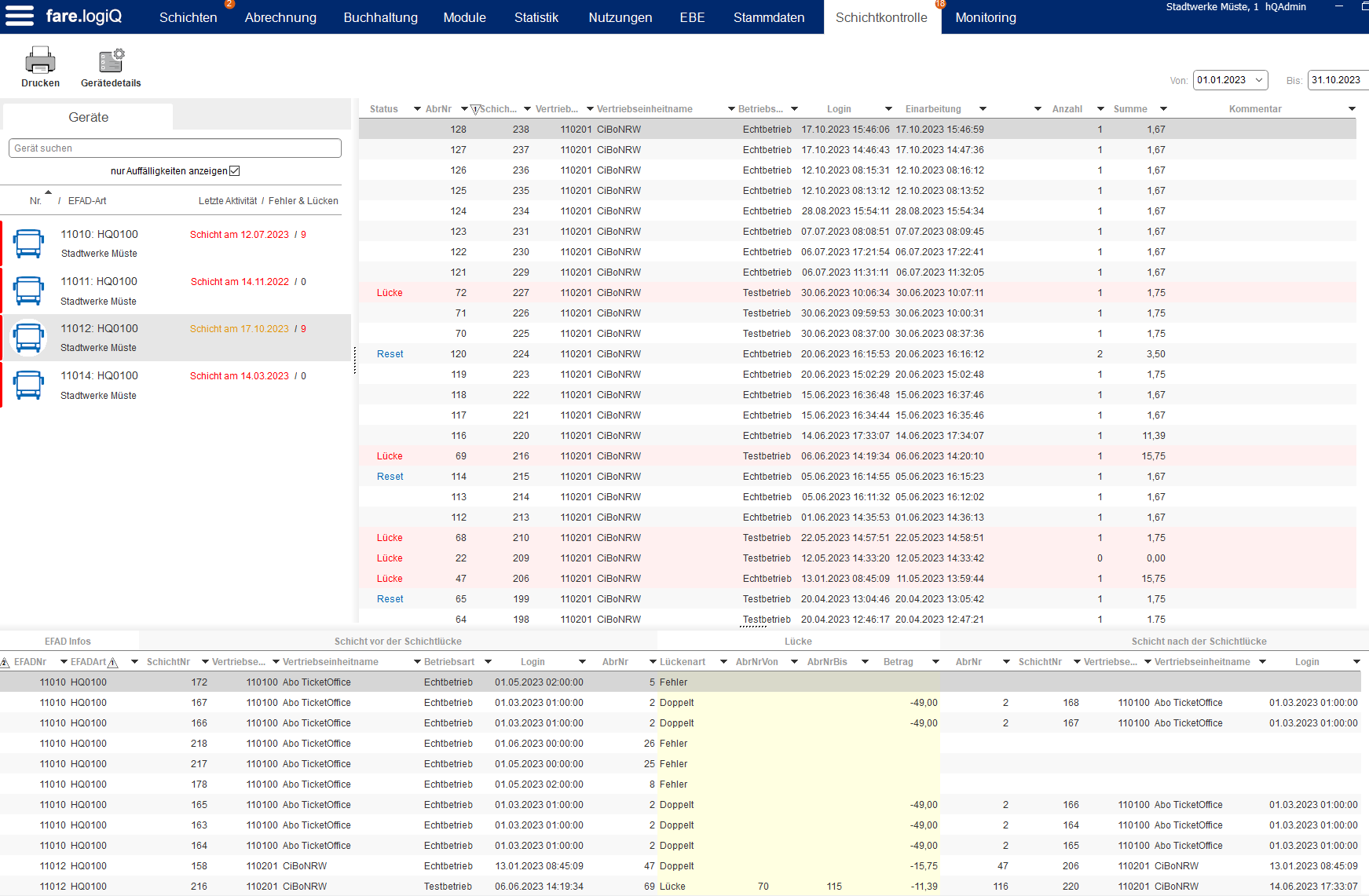
Subledger accounting
All accounting transactions are summarized in daily closings, which are assigned to the respective fare.logiQ user.
The daily closing does not refer to a calendar day and can be finalized at any time. No further changes can then be made to the relevant posting items.
The final daily closing is assigned to the current monthly closing. The month-end closing is assigned to the calendar month. If there are no open day-end closings, a final month-end closing can be carried out that summarizes all assigned day-end closings. Different printouts provide information on monthly totals, e.g. in relation to sales channels, payment types, products or revenue per organization.
Corresponding exports for downstream general ledger accounting can be generated for both daily and monthly financial statements. SAP R3K interfaces are already available in fare.logiQ for this purpose.
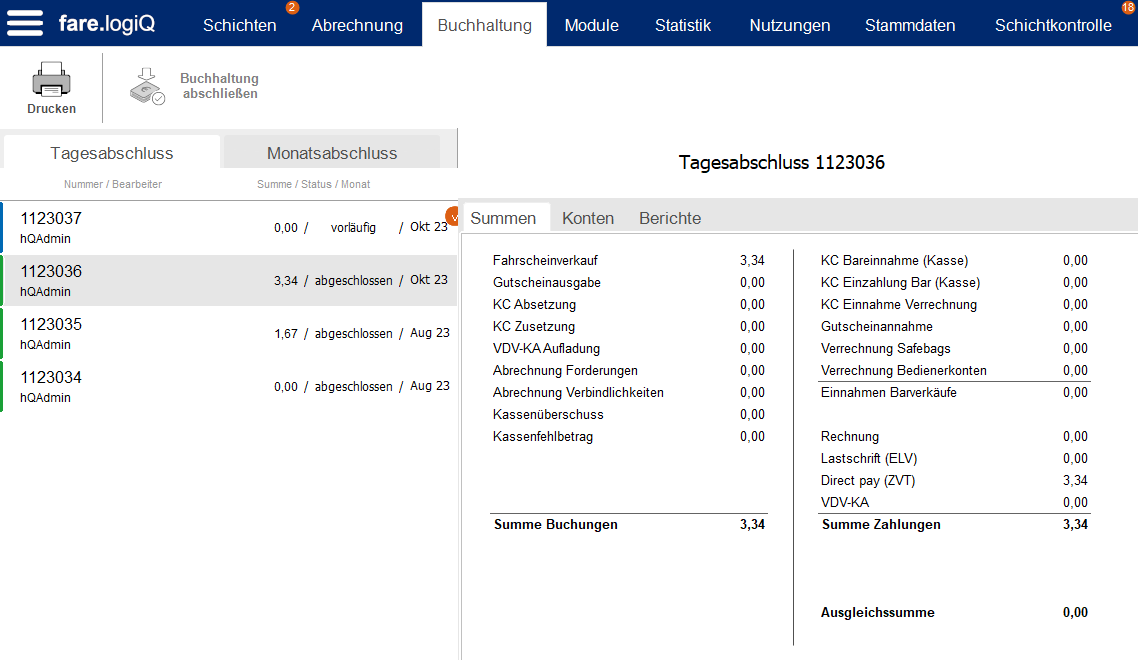
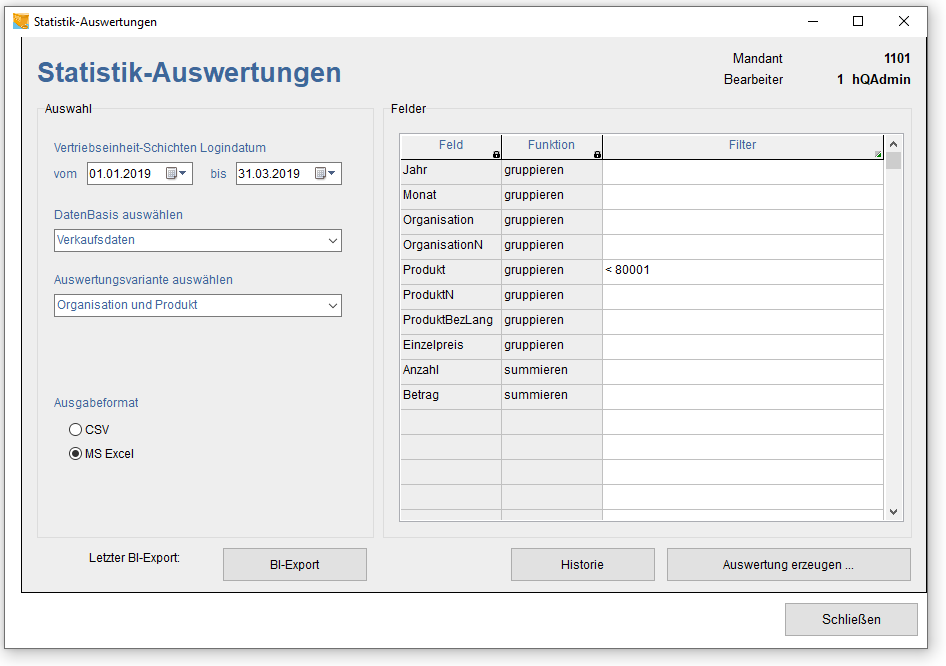
Statistics and standard evaluations
All sales and booking data in fare.logiQ is stored in a central database with a relational structure.
A user interface is provided which can be used to generate and save statistical evaluations based on SQL queries using a simple user interface. A set of standard evaluations is preset. In addition, evaluation variants can be created or customized. An optional business intelligence tool is available for a graphical display with interactive editing.
Pre-set evaluation variants can be selected via the statistics evaluation interface and, after selecting a date range and, if necessary, setting the desired filters (possible for each field of the query), a corresponding evaluation can be created at the touch of a button. Default settings include, for example, sales per month, organization and product; sales by day of the week; usage by sales location, start location and destination.
The result of a statistics query can be generated either as an MS Excel file or as a semicolon-separated CSV file by making settings on the user interface.
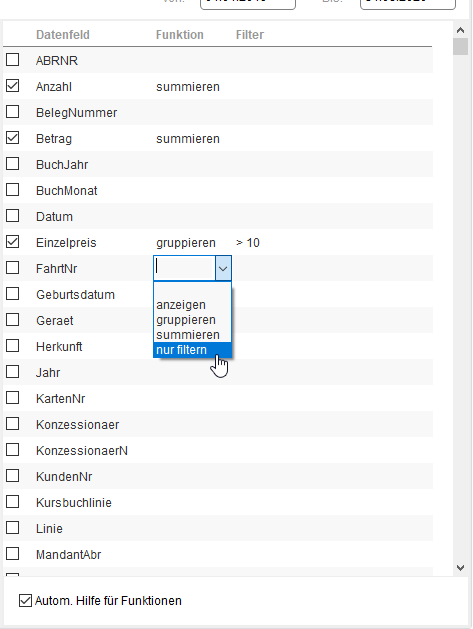
Editing evaluation variants
Query variants can be freely defined by users with special authorization.
A set of possible fields is provided, which can initially be put together as required using a selection box. The attributes "Display", "Group", "Sum" or "Filter only" can then be displayed for each field via a further selection box. Finally, a filter value can be assigned to each field. Once the input is complete, the resulting query variant can be given a name and saved.
The system then generates a template in MS Excel format. This can be edited and used permanently as a template for this query variant. This also enables users without database knowledge to create statistical overviews of their company, e.g. sales revenue per line, to generate information on passenger counts or ticket usage.
Evaluation and reporting functions
This BI-system corresponds to a platform with freely configurable evaluation and reporting functions, whereby a wide range of evaluation variants are possible.
The system allows you to create any form of evaluation for which the corresponding raw data can be imported from the database (automated daily import job).
The output form can be an export to PDF or paper printout as well as a digital display on a PC or smartphone/tablet.
Viewing the digital statistics with the Business Intelligence System offers a particularly flexible and transparent view of the data through interactive control of individual query elements.
The view can be expanded or restricted without delay by clicking on the graphic.

Group messages
Furthermore, fare.logiQ enables the creation of a reporting month independent of the accounting month, which is user-controlled.
This enables a clear delimitation of the monthly allocation of sales data. Subsequently, reports are generated to the associations according to the tariffs sold. Depending on the requirements, the sales data is processed and, if necessary, supplemented with additional information and formatted. Simple CSV files can be generated or the association's reporting templates, e.g. in MS Excel format, can be filled directly.
The creation of reports can be marked as final on a monthly basis, which ensures clear traceability regardless of any subsequent data. These are assigned to the following month as subsequent notifications.
The integrated BI and CPM-Tool offers the following advantages:
Efficient dashboards with a quick overview
The comprehensive and easy-to-understand dashboard simplifies the workflow enormously. Users appreciate the benefits of our application.
- Dynamic data analysis in real time
- Daily data overview
- Connection of various upstream systems
- Individual reports/ evaluations
- Excel Look&Feel
- Available on different end devices
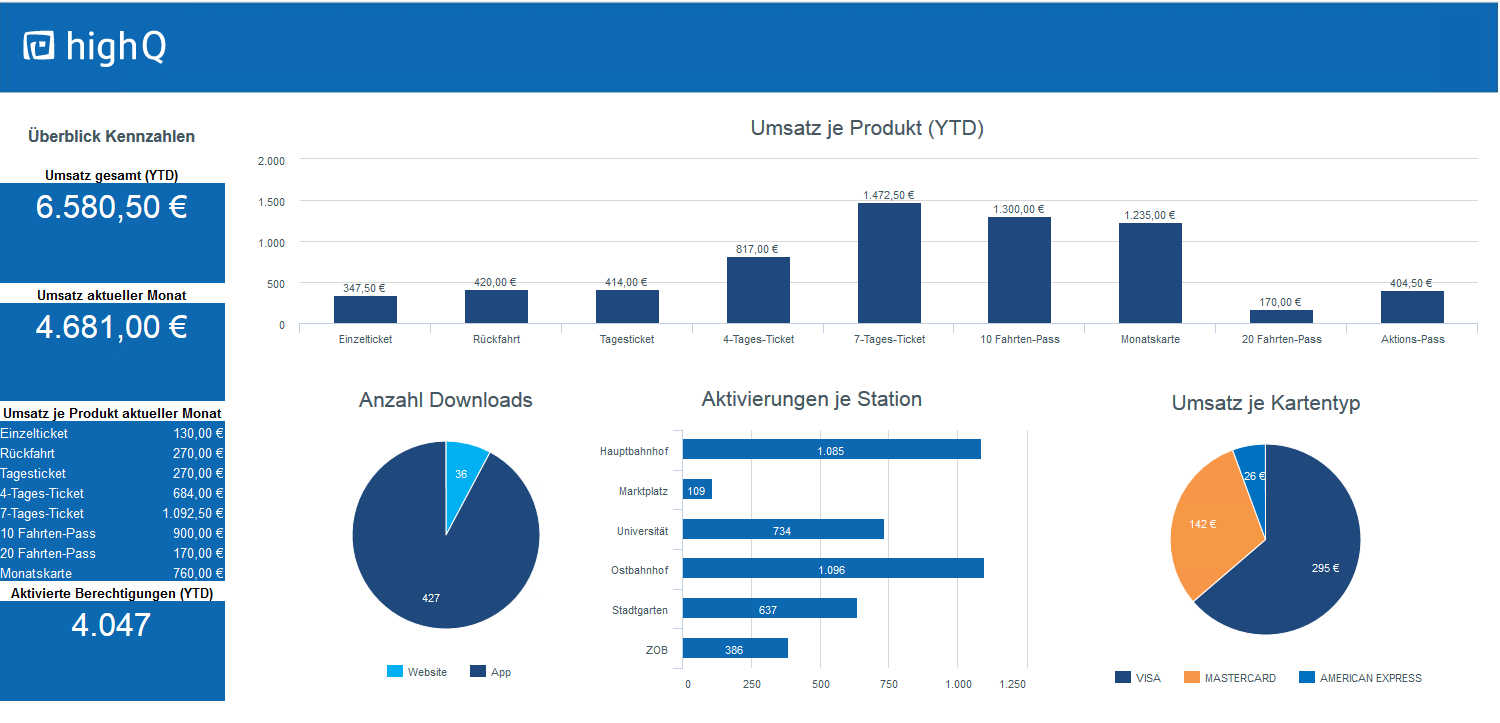
Business Intelligence System
A browser-based, multidimensional business intelligence system (so-called BI tool) is optionally integrated in fare.logiQ for mapping evaluations with flexible reporting.
This allows the user at any time:
- create individually configurable reports
- display them in graphical
- as well as in tabular form

Transportation service calculation (TLR)
fare.logiQ has an interface for transport performance accounting (TLR).
On the one hand, the revenue from the sales devices already assigned to the corresponding lines during data conversion is used for this purpose, and on the other hand, the amounts recorded via the other revenue postings from the network settlement or from subsidies, which are assigned to the corresponding line during entry. Revenue from non-related sales that cannot be allocated to a line is initially allocated to a fictitious line.
To prepare the data for the TLR, the route-related revenue is compared with the route kilometers travelled. A VDV-compliant interface is available for recording the line kilometers so that the data can be imported directly from a planning system. The values can be edited manually via the master data management and distribution keys and corresponding weightings can be specified for an individual allocation and, in particular, for the resolution of the fictitious lines initially assigned with amounts.
This creates the data required for the cost-benefit calculation in the TLR in an export run. The "TLR Bus" interface from Deutsche Bahn is supported.
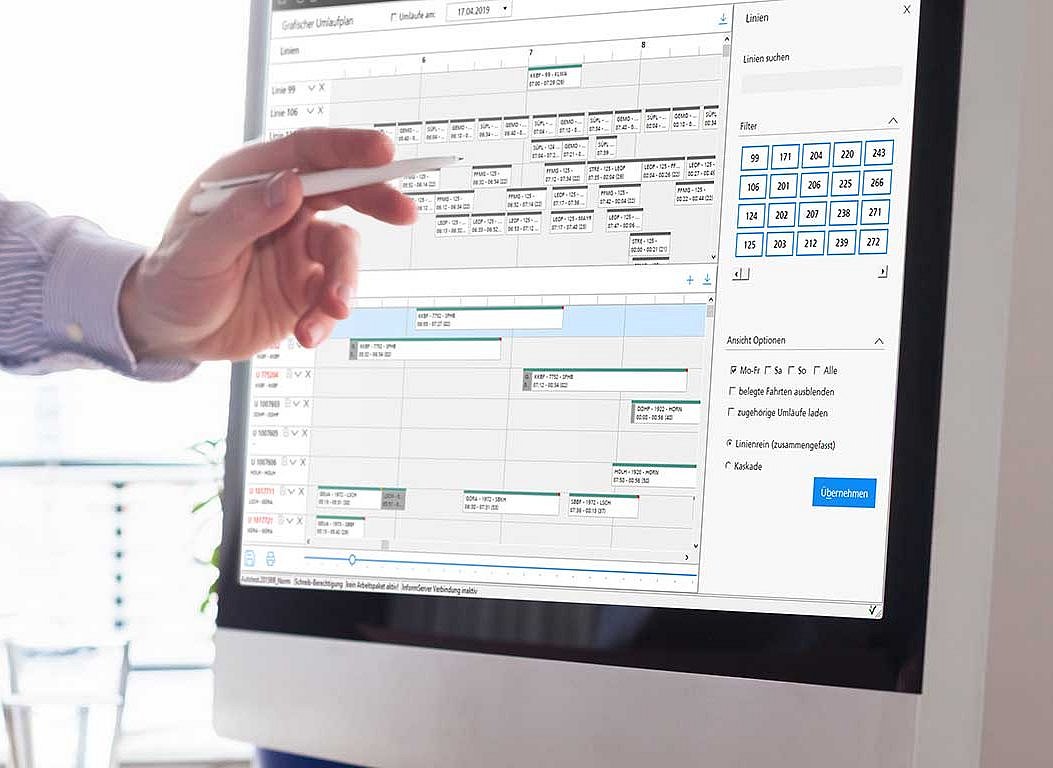
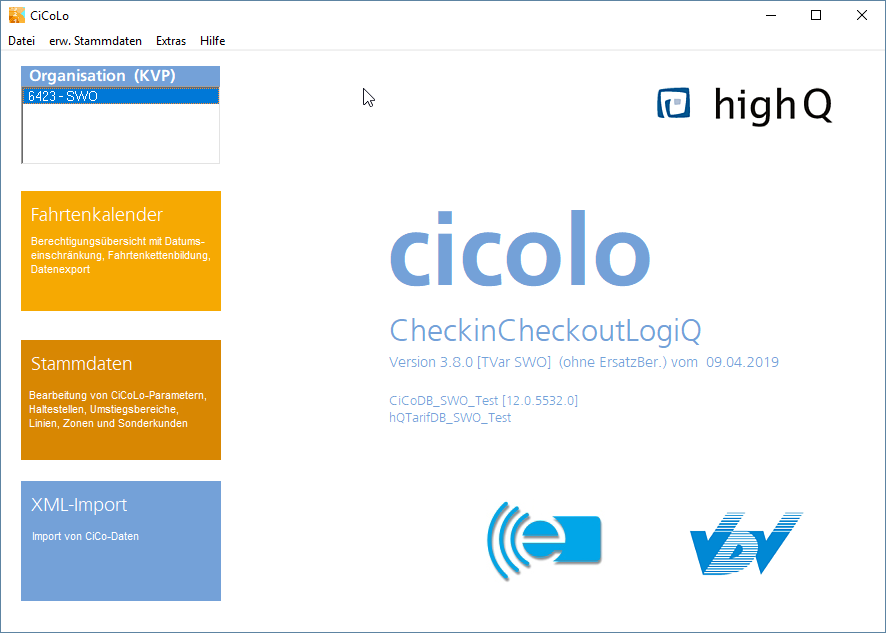
The CiCoLo check-in - check-out solution
with CiCoLo from highQ, VDV-KA Level 3 is perfectly organized!
CiCoLo offers comprehensive check-in/check-out management with standardized interfaces.
With (((eTicket Deutschland and the associated standardization of data interfaces, the Association of German Transport Companies VDV offers a specification that CiCoLo fully supports. If you are planning to expand your transport services to include a standardized procedure with automatic usage-based fare calculation, CiCoLo can be easily integrated into your transport company. In a similar way, CiCoLo is also used as a background component in smartphone app-based check-in/check-out systems.
The fully automated CiCoLo reads VDV-KA control transactions (so-called TXEBER data records) from electronic tickets at reading terminals in vehicles or at stops on the one hand and boarding / alighting transactions from the app backend of a CiBo system on the other hand and determines check-in and check-out actions from these.

Customer-friendly check-in and check-out
Taking into account configurable criteria, the trips or entire trip chains are determined from the actions which, in conjunction with the selected tariff, lead to a priced sales data record. All actions can be monitored via graphical user interfaces and, in exceptional cases, reworked manually.
For customer-friendly handling of the often unavoidable operating errors that occur during check-in and check-out procedures, e.g. by forgetting the check-out action. CiCoLo has an automatic journey completion function that uses a memory function in conjunction with parameterizable criteria to control escalation levels - a self-learning, intelligent solution that will delight your passengers.
CiCoLo supports the manufacturer-independent HUSST standard interface for transferring sales data records to a background system for further processing. The tariff stored in CiCoLo can also be imported in full or as a difference delivery via the manufacturer-independent HUSST standard interface.
Due to the analogy of the processes, CiCoLo can also be used for sales systems with check-in and check-out or be-in and be-out procedures. CiCoLo was developed in cooperation with Kreisverkehr Schwäbisch Hall, which operates the first check-in/check-out sales system in accordance with the VDV-KA standard.
(Kopie 31)
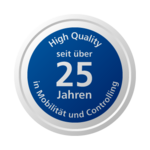
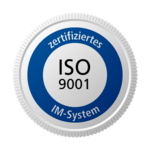
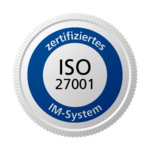
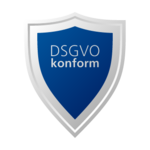


highQ: Over 25 years as a partner for fair and sustainable mobility solutions
With more than 25 years of experience, highQ is your reliable partner for future-oriented mobility solutions. Together we design the building blocks of sustainable mobility. Whether high technical requirements, new functionalities or legal regulations: Thanks to our team of experts, we will find the ideal solution for you.
Let's shape the future of mobility together!
Do you have any questions about fare.logiQ?
Kai Horn and his team will be happy to help you.


